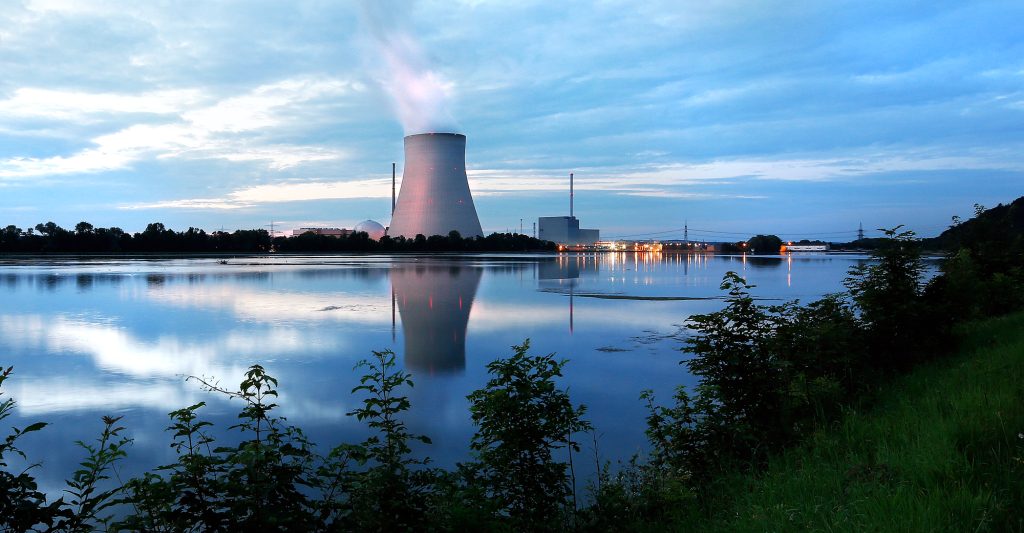Curious about the history of nuclear power in Sweden? Look no further. In this article, we’ll delve into the development and significance of nuclear energy in Sweden, exploring its role in electricity generation and its impact on the economy and environment. From the establishment of the first experimental reactor in the 1950s to current plans for new reactor construction, we’ll uncover the milestones and challenges that have shaped Sweden’s nuclear industry. Get ready for a comprehensive overview of Swedish nuclear power.
Early Nuclear Research and Development
In the early stages of nuclear research and development in Sweden, the country established AB Atomenergi, an atomic energy research organization, in 1947. This organization played a crucial role in advancing nuclear research in Sweden. The early nuclear experiments conducted by AB Atomenergi paved the way for significant advancements in nuclear technology. The organization played a key role in the establishment of nuclear research facilities and the development of nuclear reactor prototypes.
One notable achievement of AB Atomenergi was the commissioning of the first experimental reactor, R1, in 1954. This marked a major milestone in Sweden’s nuclear research journey. Furthermore, in 1960, two test reactors, R2 and R2-0, were commissioned, furthering the goal of nuclear power production in the country.
AB Atomenergi’s efforts in nuclear research and development laid the foundation for Sweden’s future success in the nuclear industry. The organization’s commitment to advancing nuclear technology and conducting groundbreaking research allowed for significant progress in the field. Their contributions have played a vital role in shaping Sweden’s nuclear energy landscape and have paved the way for future advancements in the field of atomic energy.
Construction and Operation of Nuclear Reactors
Commissioning nuclear reactors was a significant milestone in Sweden’s nuclear energy journey, marking the beginning of their construction and operation. These reactors play a crucial role in nuclear power generation, providing numerous benefits such as reliable and sustainable energy, supporting the economy, and contributing to Sweden’s energy transition goals. Ensuring nuclear reactor safety is of utmost importance, with each plant equipped with comprehensive safety systems and the Swedish Radiation Safety Authority overseeing operations. Additionally, nuclear power plants prioritize the responsible management of nuclear waste, adhering to Swedish regulations for dismantling and demolishing reactors. When considering the economics of nuclear power plants, there are ongoing discussions regarding the repeal or modification of the capacity tax imposed on the industry. Despite these economic challenges, the future of nuclear energy in Sweden looks promising, with plans to restart decommissioned reactors, construct new ones, and explore innovative solutions such as small modular reactors. Overall, nuclear power plays a significant role in Sweden’s electricity generation, contributing to a diversified energy mix and supporting the country’s sustainable energy goals.
| Nuclear Reactor Safety | Nuclear Energy Benefits |
|---|---|
| – Comprehensive safety systems in place | – Reliable and sustainable energy |
| – Quick shutdown capabilities in case of technical errors | – Supports the economy and job market |
| – Oversight by the Swedish Radiation Safety Authority | – Contributes to Sweden’s energy transition goals |
| – International network for knowledge exchange and safety measures | – Enhanced safety features in future reactors |
| – Responsible nuclear waste management | – Lower construction and operational costs |
Evolution of Nuclear Energy Policy
Moving forward from the construction and operation of nuclear reactors, let’s delve into the evolution of Sweden’s nuclear energy policy. Sweden’s nuclear energy policy has undergone significant changes and developments over the years. The country has a long history of nuclear research advancements and has faced various challenges in reactor construction. The evolution of nuclear energy policy in Sweden has been influenced by controversies in the nuclear industry, such as concerns about reactor accidents, long-term health issues, and nuclear waste disposal.
In recent years, there has been a shift in Sweden’s nuclear energy policy. The government has recognized the future potential of nuclear energy and has taken steps to support its development. In 2022, the incoming government called for the investigation of restarting certain nuclear reactors and preparing for the construction of new ones. In January 2023, the government announced plans to scrap existing rules that limit the number of reactors and restrict their construction to current locations, allowing for the possibility of new nuclear plant construction.
These policy changes reflect a growing recognition of the importance of nuclear energy in Sweden’s energy mix and its potential to contribute to the country’s energy transition goals. As the future of nuclear energy in Sweden continues to be discussed and shaped, it is clear that nuclear power will play a crucial role in providing reliable and sustainable energy, supporting the economy and job market, and contributing to global decarbonization efforts.
Challenges and Controversies in the Nuclear Power Industry
Navigating the nuclear power industry in Sweden comes with its fair share of challenges and controversies. The industry faces ongoing concerns and debates regarding reactor safety, nuclear waste management, public opinion, environmental impact, and the potential for nuclear accidents. These issues highlight the complexity and importance of maintaining a safe and sustainable nuclear power sector.
- Reactor Safety: Ensuring the safety of nuclear reactors is of utmost importance. Stringent regulations and comprehensive safety systems are in place to prevent and mitigate accidents.
- Nuclear Waste: The disposal of nuclear waste poses a significant challenge. Finding a long-term solution for the storage and management of radioactive waste is crucial for the industry’s sustainability.
- Public Opinion: Public perception of nuclear power varies. While some view it as a reliable and low-carbon energy source, others have concerns about safety, waste, and the potential for accidents.
- Environmental Impact: The environmental impact of nuclear power, particularly in terms of carbon emissions, is a subject of debate. While nuclear energy is low in greenhouse gas emissions during operation, the mining and processing of nuclear fuel have environmental consequences.
Addressing these challenges and controversies is essential in maintaining the safety, viability, and public acceptance of the nuclear power industry in Sweden.
Decommissioning of Nuclear Power Plants
When it comes to the nuclear power industry in Sweden, one important aspect that needs to be addressed is the process of decommissioning nuclear power plants. Decommissioning refers to the safe and orderly shutdown of nuclear reactors and the dismantling of the associated infrastructure. This process presents several challenges and costs. Safety measures are of utmost importance during decommissioning to ensure the protection of workers, the public, and the environment. Stringent regulations and guidelines are in place to govern the decommissioning process and minimize any potential environmental impact.
Public opinion plays a significant role in shaping the approach to decommissioning nuclear power plants. It is crucial to engage with the public and address their concerns regarding safety, waste management, and the long-term impact of decommissioning activities. The regulatory framework in Sweden provides a structured approach to decommissioning, emphasizing transparency, accountability, and adherence to international standards.
The decommissioning of nuclear power plants requires careful planning, technical expertise, and adequate financial resources. It involves the removal and disposal of radioactive materials, the dismantling of structures, and the remediation of contaminated sites. The costs associated with decommissioning can be substantial, and it is essential to ensure that funding is available throughout the entire process.
Future Outlook and Potential for Nuclear Energy in Sweden
Looking ahead, the future of nuclear energy in Sweden holds great potential for further development and expansion. The prospects for nuclear energy in Sweden are influenced by various factors, including government policy, the ongoing energy transition, public perception, and investment opportunities. Here are some key points to consider:
- Government Policy: The Swedish government has shown a willingness to reconsider its stance on nuclear energy. The shift towards a ‘100% fossil-free’ electricity target allows for the possibility of new nuclear plant construction and indicates a more favorable policy environment for nuclear power.
- Energy Transition: As Sweden aims to transition to a sustainable energy system, nuclear power can play a crucial role in providing reliable and low-carbon electricity. Its continuous operation contributes to Sweden’s energy transition goals and supports the country’s economy and job market.
- Public Perception: Public perception of nuclear energy in Sweden has been mixed. While concerns about reactor accidents, long-term health issues, and nuclear waste disposal persist, there is also growing recognition of the benefits of nuclear power in terms of emissions reduction and energy security.
- Investment Opportunities: The future of nuclear energy in Sweden offers attractive investment opportunities. The construction of new reactors and the modernization of existing ones require significant financial investments, which can create jobs and stimulate economic growth.





